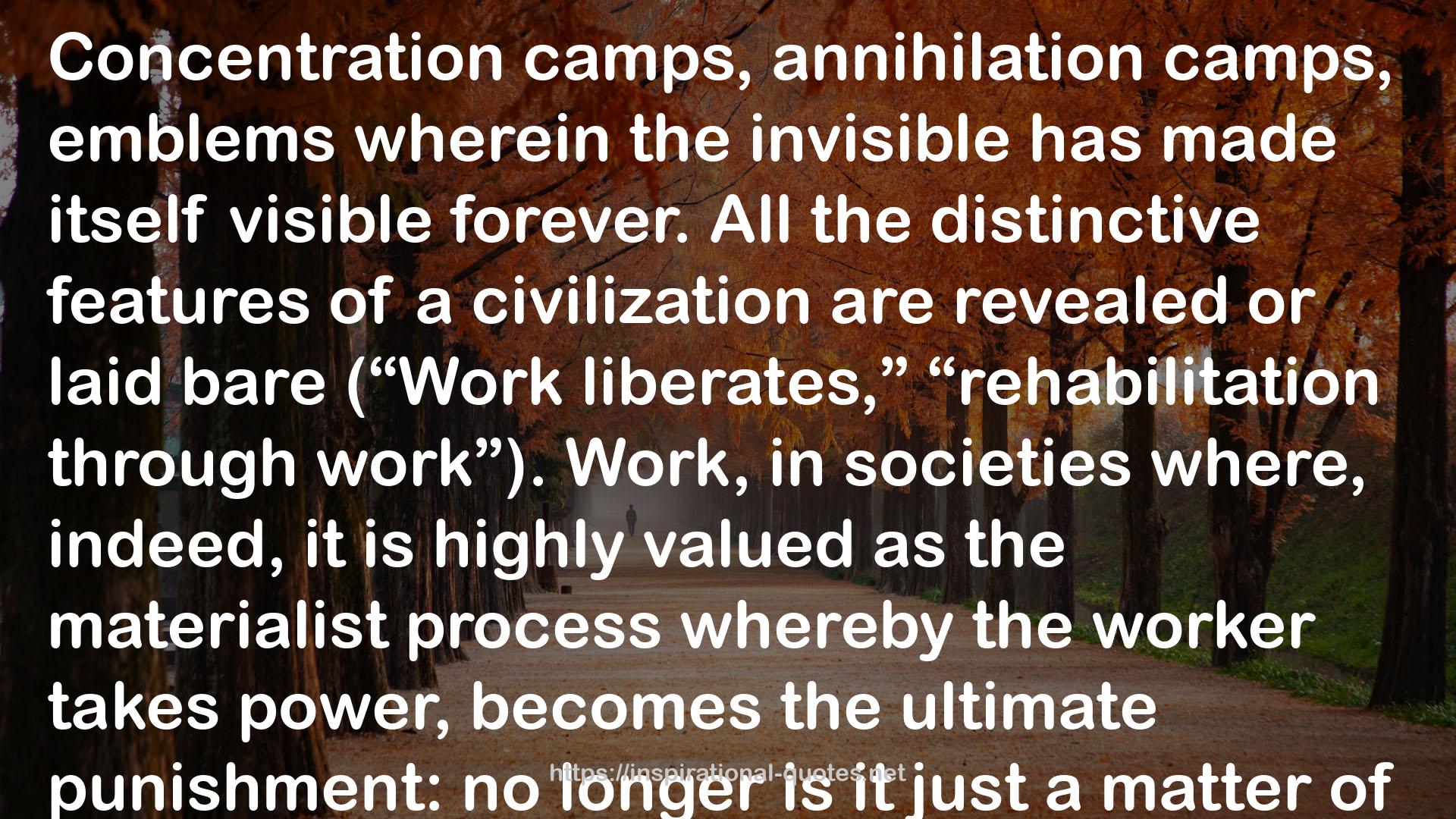" Concentration camps, annihilation camps, emblems wherein the invisible has made itself visible forever. All the distinctive features of a civilization are revealed or laid bare (“Work liberates,” “rehabilitation through work”). Work, in societies where, indeed, it is highly valued as the materialist process whereby the worker takes power, becomes the ultimate punishment: no longer is it just a matter of exploitation or of surplus-value; labor becomes the point at which all value comes to pieces and the “producer,” far from reproducing at least his labor force, is no longer even the reproducer of his life. For work has ceased to be his way of living and has become his way of dying. Work, death: equivalents. And the workplace is everywhere; worktime is all the time. When oppression is absolute, there is no more leisure, no more “free time.” Sleep is supervised. The meaning of work is then the destruction of work in and through work. But what if, as it has happened in certain commandos, labor consists of carrying stones at top speed from one spot and piling them up in another, and then in bringing them back at the run to the starring point (Langbein at Auschwitz; the same episode in the Gulag; Solzhenitsyn)? Then, no act of sabotage can cancel work, for its annulment is work’s own very purpose. And yet labor remains a meaning: it tends not only to destroy the worker, but more immediately to occupy, to harness and control him and at the same time perhaps to give him an awareness that to produce and not to produce amount to the same – that the one and the other alike are work – yet thereby it also makes the worker, whom it reduces to naught, aware that the society expressed in the labor camp is what he must struggle against even as he dies, even as he survives (lives on despite everything, beneath everything, beyond everything). Such survival is (also) immediate death, immediate acceptance of death in the refusal to die (I will not kill myself, because that would please them; thus I kill myself opposing them, I remain alive despite them). "
― Maurice Blanchot , The Writing of the Disaster
